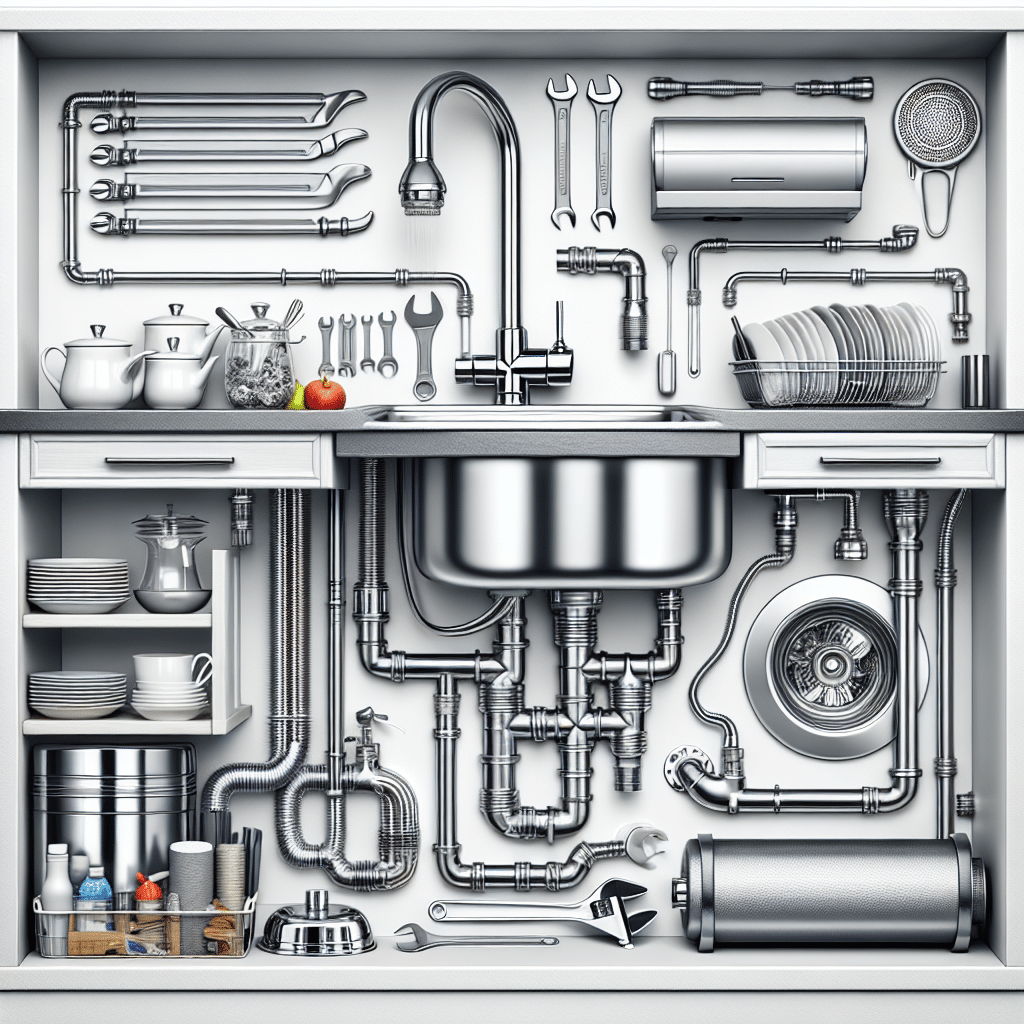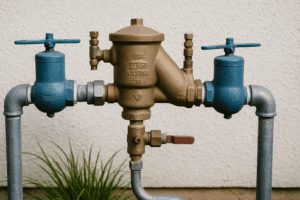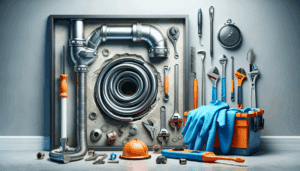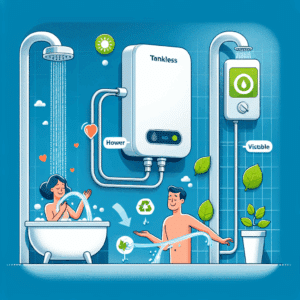Does your kitchen plumbing have you puzzled? Relax; we’re here to make things easier. This blog is designed to enlighten homeowners like us, offering simple solutions to common kitchen plumbing concerns.
Understanding Your Kitchen Plumbing System
Kitchens can be the heart of the home, bustling with activity. However, when the plumbing acts up, it can put a damper on things quickly. Understanding the basics of your kitchen plumbing system can help avert potential disasters.
The typical kitchen setup comprises pipes, faucets, a sink, a garbage disposal, and sometimes a dishwasher. Knowing how these components work together will empower us to better maintain them and recognize when something’s amiss.
Common Kitchen Plumbing Issues
Leaky faucets, clogged drains, and low water pressure can plague any kitchen. Familiarizing ourselves with these common issues is the first step in keeping our kitchens running smoothly.
A leak might seem minor, but left unchecked, it can lead to wasted water and higher bills. Identifying the problem early can save both time and money.
Preventing Clogged Drains
Clogs are a nuisance no one wants to deal with frequently. Implementing a few preventative measures can help keep our drains clean and functional.
Regular cleaning and mindful disposal practices, such as avoiding pouring grease down the sink, can significantly reduce clog occurrences. Consider using drain strainers to catch food particles and debris.
How to Fix a Leaky Faucet
A dripping faucet can be more than just a source of irritation; it’s a waste of water. Fixing a leaky faucet doesn’t have to be a daunting task.
First, determine what type of faucet you have. Replacing a worn-out washer, O-ring, or a valve seat can often solve the problem. If in doubt, reaching out to professionals like us ensures the repair is done right.
Dealing with Low Water Pressure
Low water pressure in the kitchen can be frustrating, especially during busy times. Identify whether the issue is localized to the kitchen or affects the entire house.
If it’s a kitchen-specific problem, the aerator might be clogged. Cleaning or replacing it can restore normal pressure. Consistent issues may require expert assistance to solve deeper plumbing concerns.
The Role of Garbage Disposals
Garbage disposals streamline kitchen cleanup but must be used correctly to avoid problems. Understanding what not to put down the disposal can prolong its life.
Fibrous materials, bones, and grease can damage the disposal or cause clogs. Regularly running cold water while using the disposal can help prevent malfunctions.
Maintaining Your Dishwasher Connection
Dishwashers are connected to the kitchen plumbing and can cause issues if not maintained. Ensure all hoses are tight and free from leaks to avoid water damage.
If you’re noticing standing water after a cycle, cleaning the filter and checking for clogs might solve the issue. Keeping the dishwasher in good shape ensures smooth operation.
Tips for Installing New Kitchen Fixtures
Installing new fixtures can rejuvenate a kitchen’s aesthetic and functionality. Proper installation is key to avoiding leaks and ensuring longevity.
If you’re DIY-inclined, make sure to follow the manufacturer’s instructions and turn off the water supply before starting. However, enlisting professional help can offer peace of mind and a perfect fit.
Choosing the Right Plumbing Materials
The right materials make a big difference in long-term plumbing health. Not all pipes and fixtures are created equal, and selecting quality materials can prevent future issues.
Consider durability, compatibility with existing systems, and the water quality in your area when choosing materials. Our team can provide expert advice tailored to your kitchen’s needs.
When to Call a Professional
Sometimes, DIY solutions aren’t enough. Knowing when to call in the pros can prevent minor issues from escalating into major ones.
If you’re facing recurring problems or serious blockages, it’s wise to contact experienced plumbers. Our certified team at Gilbert Plumbing Company is ready to assist with any kitchen plumbing needs, big or small.
Essential Maintenance Checklist
Regular maintenance can keep your kitchen plumbing in top shape. Here’s a handy checklist to guide you:
- Check for leaks: Regularly inspect faucets and pipes for any signs of leakage.
- Clean your drains: Use a safe drain cleaner monthly to avoid build-up.
- Flush the garbage disposal: Run it frequently to prevent odors and jams.
- Inspect the dishwasher connection: Ensure hoses and filters are clean and intact.
- Update any old fixtures: Consider replacing outdated fixtures before they fail.
Conclusion
Maintaining a happy and functional kitchen begins with understanding and caring for its plumbing. For all your kitchen plumbing concerns, give us a call at 480-535-0728 or Request a Free Quote today!



